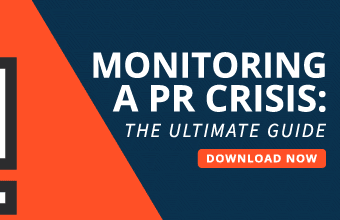Before the turn of the year, Group M, the world’s largest advertising media company, produced a report predicting UK advertising sector growth of 6.7 percent in 2020 equating to an industry value of £24bn by the end of the year.
Fast forward five months and, as we all know, the script has well and truly been ripped up. The coronavirus pandemic has disrupted every sector, and as a result, we’ve seen brands rapidly scale back marketing activity; 62 percent of marketers have changed their strategies, with only 14 percent of UK marketing campaigns now continuing as planned.
Although it may be tempting to bury your head in the sand in times of hardship, there is substantial evidence to show that turning the tap off on marketing during a crisis may do your brand more harm than good in the long-term. A 2009 study of the Great Depression shows how brands such as Procter & Gamble, who maintained or increased marketing spend, went on to dominate share of voice. Procter & Gamble is now worth $230bn, meanwhile their key competitors at the time have collapsed. So how do brands maintain their social media channels effectively?
Social listening
Crises bring out the best and worst in us. Depending on how you respond to a downturn, your brand can potentially become increasingly vulnerable to criticism and can attract negative press if you don’t manage your reputation carefully.
In this instance, social listening can become even more important, proving a useful tool to analyse consumer sentiment. Beyond standard metrics including engagement rates, shares and impressions, there are increasingly sophisticated platforms available to monitor conversations about your brand—both positive and negative—and identify who the key influencers of opinion are and what they’re saying. Doing so can help you to predict the onset of a reputational crisis, allowing you more time to prepare an effective and coherent response that will protect your brand’s public image.
What consumers want
Although circumstances for many businesses have changed, with most shops currently closed, brands should not take this as an excuse to leave their social media channels vacant too. Normal life will soon prevail and customers need and appreciate reassurance that you will be there for them once lockdown is over—and you can show consumers you are a strong and confident brand in the process.
With more time at home, consumers are increasingly looking to social media as a form of escape. Consumers want brands who recognise their pain and challenges at this difficult time and who can offer light relief through entertaining and engaging content or positive messaging. On the other hand, brands who appear opportunistic or fail to reflect the ‘new normal’ in their messaging could end up losing consumer support.
First things first is making sure you get the tone right. Audit your own brand to understand your USPs, assess your core audience demographic and existing consumer perceptions, plan how you want to shape these and analyse your competitors to find your own niche.
Community management
Community management is another key technique to keep consumers engaged in times of crisis. Responding to customer messages with personalised communications is a great way to show you still care and keep them connected. Commenting underneath or resharing stories from other brands or outlets that you feel your audience would enjoy also shows your brand is passionate about your sector. Sharing other people’s content is also a way of staying relevant at a time when you may not have as much to report on as a business.
Engaging with topical conversations that your consumers are likely to be interested in also keeps your brand feeling fresh, especially if it is a trending hashtag. Follow key hashtags on Twitter and set up Google alerts to make sure you’re keeping up to date.
There are many ways to keep you brand front of mind and ensure consumers are continuously engaged whatever the current economic climate. Apply these strategically in your social media content plan, and you can ensure your recovery from a crisis is faster and more productive, with greater sales volumes and your reputation in tact or even enhanced.
This article was originally published on May 18, 2020 and was republished on March 18, 2021.








